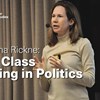unions
Parental union dissolution and the gender revolution
Social Forces Abstract This study investigates two concurrent trends across Europe and North America: the increasing instability of parental unions and men’s rising contributions to household work. Beca
A community of shared values? Dimensions and dynamics of cultural integration in the European Union
Journal of European Integration Abstract The series of recent crises (EURO, refugees, backsliding, Brexit) challenge the self-portrayal of the European Union (EU) as a community of shared values. Agains
Two Decades of Same-Sex Marriage in Sweden: A Demographic Account of Developments in Marriage, Childbearing, and Divorce
Demography 57, 147-169 Abstract In this study, we provide demographic insight into the still relatively new family form of same-sex marriage. We focus on period trends in same-sex marriage formation and
Family Relations, Children and Interregional Mobility, 1970-2000
The objective of this paper is to examine how family unions or, more precisely, the arrival of children has influenced migration during the three last decades. Both family formation and family dissolu
Organised Interests, Labour Market and Migration: the Swedish Model
The paper examines arguments presented by unions and employers concerning immigration in relation to the Swedish labor market. It also considers how Sweden’s institutional arrangements in this respect
Kinship, heritage and ethnic choice: ethnolinguistic registration across four generations in contemporary Finland
European Sociological Review Abstract We studied how individuals’ ethnolinguistic affiliation relates to the ethnolinguistic structure of kinship in contemporary Finland, a society in which Finnish-spea
The impact of AI on the future of work
There is no denying that Artificial Intelligence (AI) will change the world of work. In the report "The Future of Work: Augmentation or Stunting?" philosopher Karim Jebari and Markus Furendal, a polit
Research seminar with Johanna Rickne: The Class Ceiling in Politics
Venue: Institutet för framtidsstudier, Holländargatan 13, 4th floor, Stockholm, or online.Research seminar with Johanna Rickne, professor of Economics at SOFI, Stockholm University.Register hereAbstracPrior studies have documented that working-class individuals rarely become parliamentarians. We know less about when in the career pipeline to parliament workers disappear, and why. We study these questions using detailed data on the universe of Swedish politicians’ careers over a 50-year period. We find roughly equal-sized declines in the proportion of workers on various rungs of the political career ladder ranging from local to national office. We reject the potential explanations that workers lack political ambition, public service motivation, honesty, or voter support. And while workers’ average high school grades and cognitive test scores are lower, this cannot explain their large promotion disadvantage, a situation that we label a class ceiling. Organizational ties to blue-collar unions help workers advance, but only to lower-level positions in left-leaning parties. We conclude that efforts to improve workers’ numerical representation should apply throughout the career ladder and focus on intra-party processes.

Johanna Rickne: The Class Ceiling in Politics
Research seminar with Johanna Rickne, professor of Economics at SOFI, Stockholm University Abstract: Prior studies have documented that working-class individuals rarely become parliamentarians. We kno
Persistent boundaries. Partnership patterns among children of immigrants and natives in Sweden
Journal of Ethnic and Migration Studies Abstract Integration theories assume that ingroup partnering (endogamy) among individuals of immigrant background declines as their exposure to majority society i








